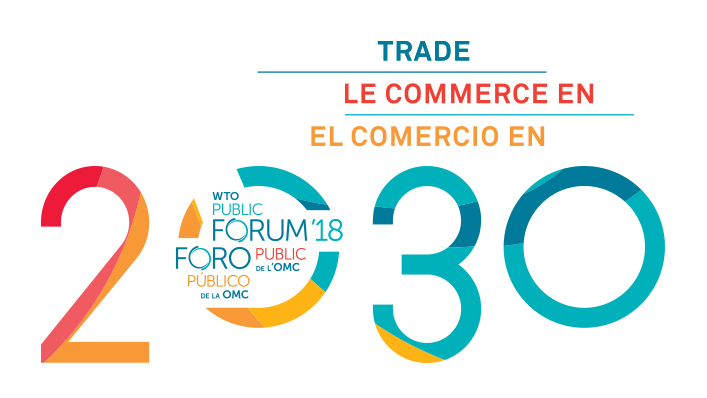A workers’ agenda for e-commerce
3 Oct 2018 02:00h
Event report
The session was organised by the International Trade Union Confederation (ITUC) and the Trade Union Advisory Committee to the OECD (TUAC), and focused on issues and opportunities for workers and union members in light of digitalisation.
The moderator, Mr Georgios Altintzis (Policy Officer, International Trade Union Confederation (ITUC)), opened the session by sharing the news of Amazon’s recent decision to grant their warehouse workers in the US, a minimum hourly wage of USD$15. This decision came after persistent pressure from both the unions and the public. However, the company decided not to extend these salaries to delivery workers.
Altintzis further introduced the idea that greed will be an issue to be addressed in e-commerce. From a union’s perspective, he called for ‘making unionisation sexy again’, and for more governmental involvement in issues created by digital developments. The moderator urged governments to keep e-commerce out of trade agreements, at least for the time being.
Other issues identified by Altintzis included, the market power concentration being a threat to economic freedom; the creation of financial bubbles; the impact of social networks on humans; and the effects of digitalisation on democracy.
Ms Anna Byhovskaya (Policy Officer, Trade Union Advisory Committee (TUAC) to the OECD) said that there are three layers of data which need to be kept in mind:
- How is data collected (i.e. through online communication, sensors, etc.)?
- How is data processed?
- How is data repurposed?
She further spoke about the fragmentation of value chains due to digital enhancements, and identified the trackability of services as a great improvement, but also a threat to workers’ rights. Workers are now constantly exposed to their performance being tracked and analysed. Use of data can become relevant for human resource processes, since this information can be used as grounds for hiring or firing an employee. The challenge posed by this development is that workers currently have very limited capacities to defend themselves against these practices, as they have no clearly defined rights of accessing this data.
With regards to global value chains, Byhovskaya spoke about the opportunities that blockchain technology brings, and the improvement in transparency it could bring to value chains around the globe.
Given the short-lived and rapidly changing nature of digital developments, the speaker highlighted the importance of being able to create ex ante regulations; citing expert views which criticise the EU general data protection regulation (GDPR) for already being outdated on certain points just shortly after having been adopted. Another regulatory measure that Byhovskaya identified was the enforcement of transparency standards under which companies have to disclose the use and purpose of collected data.
Mr Victor Figueroa (International Transport Workers’ Federation) mentioned the use of sensors and other information for enhanced trackability, and spoke about their extensive application in the transport and logistics sectors. These massive amounts of information can be used to discipline workers; benchmark workers against each other; and lead to a new form of efficiency maximisation technique, also referred to as ‘digital Taylorism’.
However, Figueroa stated that labour itself is no longer a simple productive task, as it creates data. This information emitted by employees’ work must be compensated, especially in a context where data is used to analyse which processes to automate. He further explained that artificial intelligence (AI) will also have a great impact on the workforce, creating new kinds of problems, such as the question of how to interrogate a machine-based decision.
The moderator led the discussion towards the lack of worker protection within the business models of online platforms – such as UBER or Airbnb – which put consumers in direct contact with the service provider. Besides the risks, such as the absence of social security plans, tax deficits or training deficits, Byhovskaya identified the lack of portability of data of self-employed workers from one platform to another as a further problem. Figueroa explained that this phenomenon is due to platforms by big companies attracting customers with free services, but making it difficult to leave for another service. He stated that there is a ‘supercharged tendency towards monopoly in the field of digital’. This dynamic is also applicable to service providers, given that an UBER driver for example, might not be able to transfer his ratings and recommendations to another operator.
The panellists agreed that these barriers are issues that need to be addressed by governments in order to force companies to take responsibility for their workers, be it through stronger competition laws, the application of national jurisdiction and taxation to services delivered in a country, or – in countries where it is not already the case – by giving self-employed workers the right to unionise.
Figueroa mentioned that in the UK, they are considering models for the greater democratisation of data. Ideas range from the creation of a digital Commonwealth – under which a databank would be made accessible to public institutions and startups for a cost – to the creation of a network similar to the BBC which would have an oversight mechanism; and various types of social media platforms being regulated by an ethical charter.
Related topics
Related event

